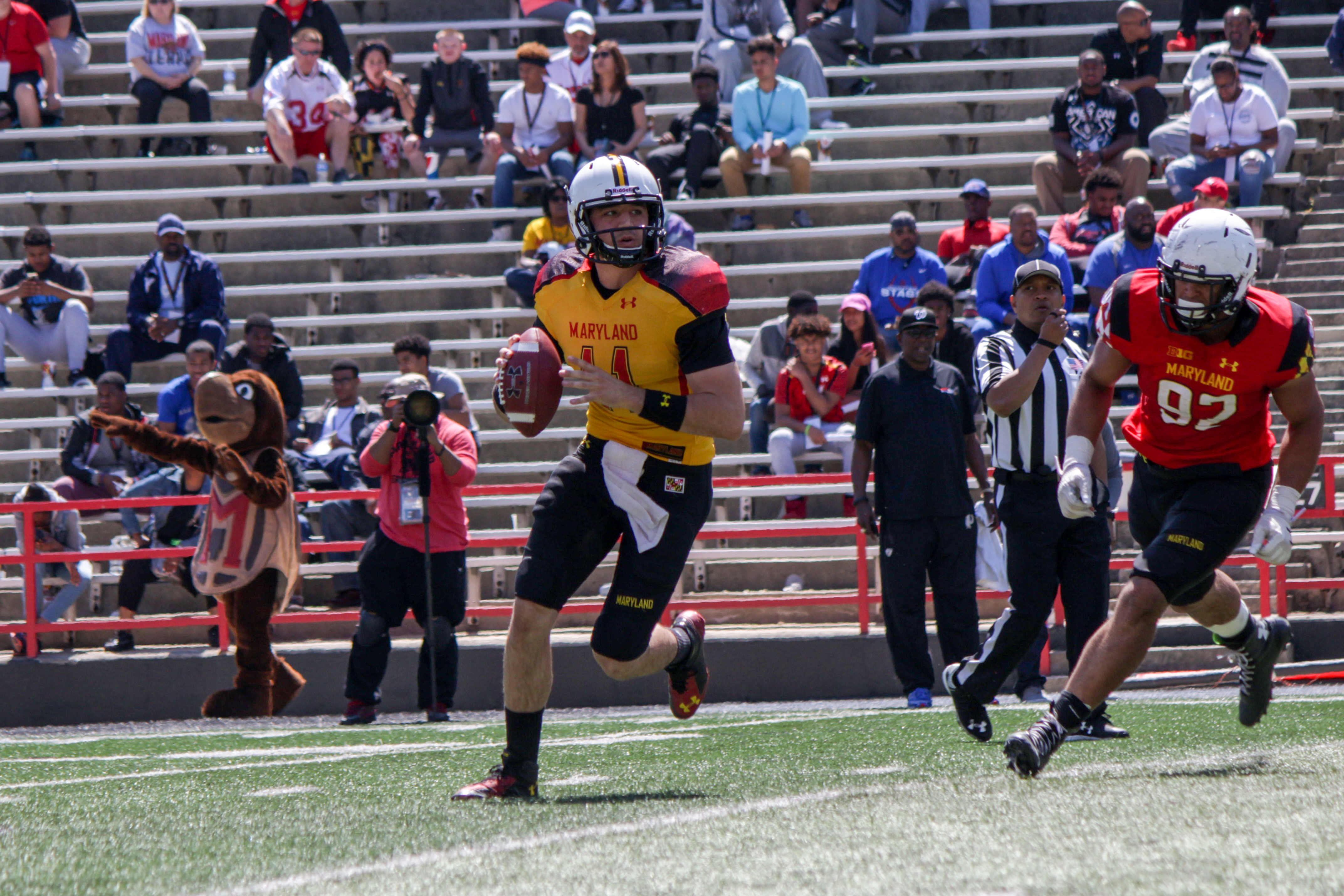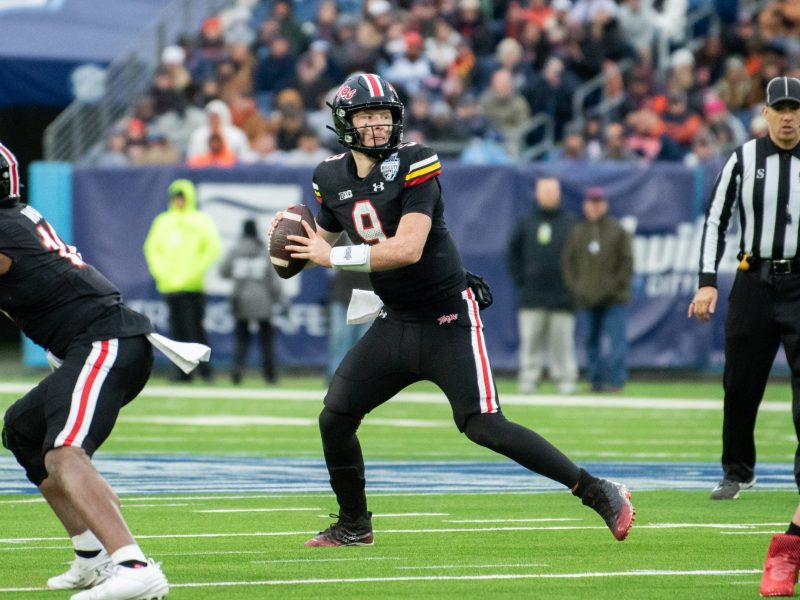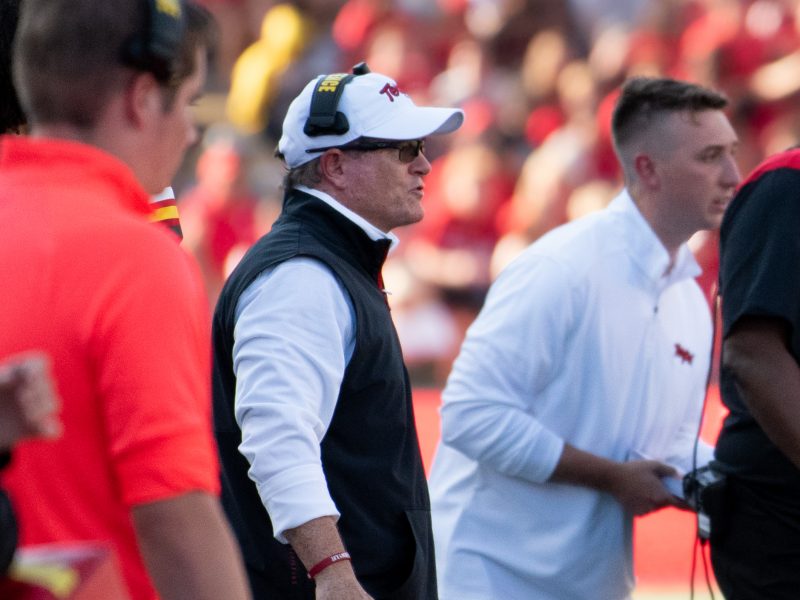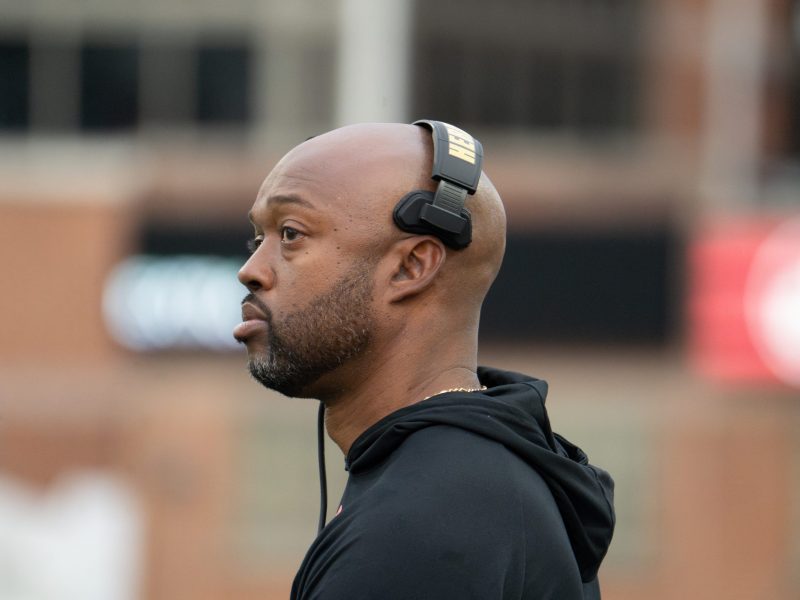Maryland football coach DJ Durkin has fostered competition within the program since arriving in College Park almost nine months ago.
The Terps are vying for starting jobs and playing time, though he said most of their performances from last year won’t factor into the new staff’s decisions. Durkin also admitted he’s tried to create adversity within the team to gauge how the players respond before the season begins.
Perhaps the most effective method Durkin has used this offseason has been implementing the Champions Club, which rewards players who do “everything right,” quarterback Perry Hills said. The incentives have promoted accountability as Durkin works to get maximum effort from his squad.
“It’s a big deal,” Hills said. “Before, if you kind of missed something, you’d do a punishment and that was the end of it, but here, if you miss something, you’re not in Champions Club.
“If you’re not in Champions Club, he has a hard time trusting you because you’re not doing the right things on and off the field.”
Durkin has divided the year into four quarters. The first included winter workouts, and the second stretched through spring practices. The Terps are finishing up the third quarter with their fall camp, while the fourth frame will include Durkin’s first campaign at the helm of the program.
To make the Champions Club in each period, a player “can’t miss anything,” running backs coach Anthony Tucker said. They have to give full effort in every workout and can’t show up late to practice or skip class.
“Wherever it is you’re supposed to be,” Tucker said, “be there.”
The benefits for meeting those standards usually involve a backpack, other Under Armour gear and dinner, complete with crab cakes, steak and lobster. The Champions Club members are served at a table at the front of the cafeteria, while the rest of the players have to fetch their own hot dogs and hamburgers.
“He wants to separate the champions from the other guys, but everyone’s welcome to get in the Champions Club. You just have to work your butt off,” Hills said. “He wants everyone to be at the table around the entire cafeteria, everyone sitting around eating steaks.”
But the pride of achieving Champions Club status, offensive lineman Damian Prince said, outweighs the tangible rewards.
“Having everybody in the program respect you from the coaches to the trainers to the academic staff, and you gain the respect of your teammates,” Prince said. “That’s the most important thing.”
Earning the distinction, however, isn’t easy.
Left tackle Michael Dunn — the Terps’ most experienced offensive lineman and a player Durkin commended at media day for his leadership and toughness — missed the cut during the spring quarter because he missed a practice with an injury.
Still, the number of players meeting the criteria has increased as the team has embraced the system and mindset. Tucker estimated the first Champions Club had representation in “the low teens.” The number has more than doubled, he said, as the season opener against Howard on Sept. 3 approaches.
Tucker has watched players push through nagging ailments, and he compared their improvements in punctuality to showing up early and late to work.
Some mornings, he said, someone could walk into the facility at 8:01 a.m. instead of 8 a.m. and no one would likely say anything about the tardiness. But Tucker admitted the Champions Club has heightened the drive to show up at 7:55 a.m. instead.
“You start to combat those urges to go to the left when you just need to continue to stay to the right because you’re going to grow staying to the right,” Tucker said. “The left is constantly pulling at you, but there’s a little added motivation because you want to be included with the guys that are doing everything the right way.
“The Champions Club represents the ultimate accountability to yourself and to what your team needs.”



